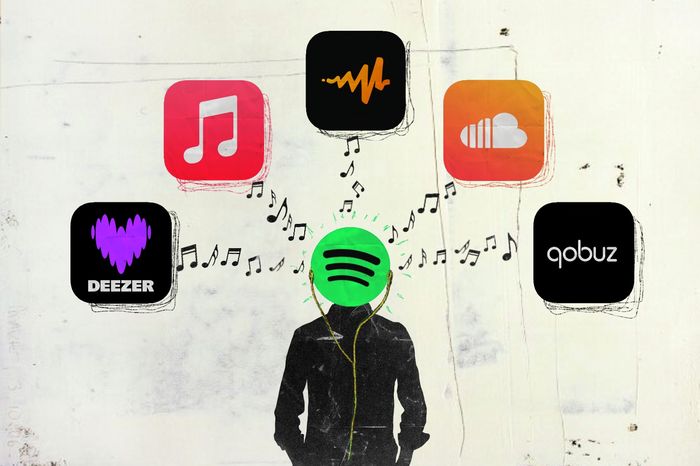Radio, someone still loves you
George Nicholson argues that the humble voice of the radio sings the tune of modern life

Why listen to what some random DJ likes when I can stream anything? This seems to be what we’re all thinking. OFCOM’s annual report on audio listening shows radio is now matched by online music services for weekly listeners. I can’t help but feel sorry reading the countless headlines on different DJs’ “record low listening figures” and the “shameful decline” of stations, looking back on a childhood spent station-hopping on the drive to school. Like the speaker in Queen’s ‘Radio Ga Ga,’ I miss my “old friend” the radio.
Yet, this made me wonder: if Queen announced the death of radio back in 1984, why are we still talking about it 40 years later? Why do 50 million UK adults still tune in at some point every week? There’s clearly something about radio that keeps drawing listeners back, and I’d argue it’s the human quality. Radio is just comforting to listen to. Instead of an endless sequence of auto-selected music with the occasional ad, you get Radcliffe and Maconie’s discussions about crisps and Mayo’s phone-in confessions. It’s these offerings that make an audience feel almost like friends instead of passive listeners. At primary school, I was interviewed on my local radio station in a segment chatting with local schoolkids. In a discussion about holidays, I remember roundly condemning the suggestion of the other interviewee to “jump in the hotel pool with all your clothes on,” so as not to encourage such behaviour from listeners. I was later a bit embarrassed about the interview, but now I realise it’s the sort of features that people love to listen to – ordinary chats with ordinary people.
“Radio’s heart beats on, in cafés, building sites, and farms”
Of course, when we have the radio on, we’re not always intently glued to it. Despite Queen’s hopes that radio won’t become “some background noise,” it can be one of its main attractions. When working at a café last summer, I found the hum of George Michael on Smooth Radio kept people ticking along – the changes of shows and presenters signalled the end of the day was nearer and nearer. It’s in places like these that radio’s heart beats on: in cafés, building sites, and farms.
As well as conversations about crisps, radio can be a lifeline for many, particularly those suffering from loneliness. “I’d sit alone and watch your light, my only friend through teenage nights,” wrote Queen. A friendly DJ can act as voice in a lonely room (charities like WaveLength provide free radios to people who are lonely and bedbound). In many rural communities too, local stations provide the only source of information on local events. I remember snowy mornings gathered intently around the radio, tuned into the local station, waiting for the news of whether my primary was closed (and, of course, the appealing prospect of a day in the snow if it was).
“Radio represents daily life in sonic form”
We’re often told that traditional radio fails to appeal to younger listeners, and it’s a fair criticism, particularly given radio’s growth is primarily from older listeners of stations like Boom Radio. Yet, I think this focusses too much on the mainstream, ignoring the wealth of student and local stations across the country. That random DJ? They might be a student on CAM FM helping you to discover a new love of acid jazz or afrobeats! Even traditional stations have adapted, embracing new technology like apps and smart speakers to reach people (myself included) who no longer have access to physical radios.
So, what is radio? For me, radio represents daily life in sonic form. From chats with primary school pupils, background music at a worksite, to vital information on school closures; radio reflects the physical world from the witty to the mundane. Therefore, it’s comforting to see that in spite of the centralization of regional stations by the BBC and others, small-scale DAB technology has allowed new community radio stations to open across the country. Where does radio go from here? Perhaps its future is in the hyper-local, with local and student stations allowing more people to feel included in the communities that radio creates.
Queen’s ‘Radio Ga Ga,’ though melancholically reflecting on the decline of radio, is nevertheless hopeful for its future: “so stick around ’cause we might miss you when we grow tired of all this visual”. So, heed Queen’s (and my) warning and be careful in assuming radio’s a dead kind of media. It survived competition from the music video, the Sony Walkman, and the iPod – its future today may not be as gloomy as it seems.
 News / Hundreds of Cambridge academics demand vote on fate of vet course20 February 2026
News / Hundreds of Cambridge academics demand vote on fate of vet course20 February 2026 News / University Council rescinds University Centre membership20 February 2026
News / University Council rescinds University Centre membership20 February 2026 News / Judge Business School advisor resigns over Epstein and Andrew links18 February 2026
News / Judge Business School advisor resigns over Epstein and Andrew links18 February 2026 News / Petition demands University reverse decision on vegan menu20 February 2026
News / Petition demands University reverse decision on vegan menu20 February 2026 News / Caius students fail to pass Pride flag proposal20 February 2026
News / Caius students fail to pass Pride flag proposal20 February 2026










